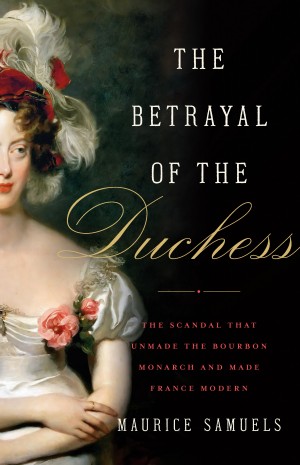Close your eyes and picture a war hero. What do you see? The protagonists of Judy Batalion’s The Light of Days may surprise you: they are teenage girls with bare feet and ragged clothes. This true story of how a group of young female freedom fighters opposed the Nazis discloses an important but overlooked chapter of Holocaust history.
Batalion brings to life the underground resistance network that existed across the Polish ghettos. The women, many not even twenty years old, were already living with extreme trauma from what they had seen and lost in the war. But no mission was off the table. They spied, built and planted bombs, went undercover to steal and deliver weapons and documents, and killed Nazi soldiers. Famed Warsaw Ghetto leader Emanuel Ringelblum praised the women and stated that their place in history was certain. Yet, as the years passed, their stories were literally left to collect dust in the British Library. Several years ago, while researching Hannah Senesh, Judy Batalion happened upon a trove of material about and by these heroines, few of whom survived to see liberation. In her capable hands, their disparate voices are successfully woven together to create a gripping and horrifying narrative.
The granddaughter of Polish Holocaust survivors, Batalion had a childhood in Montreal that was marked by the intergenerational trauma experienced by many second- and third-generation descendants of survivors. Her first book, White Walls, a memoir about her mother’s compulsive hoarding disorder, puts the concept of inherited trauma on full display. With The Light of Days, she takes us back to the root of the pain. While some of the women’s stories are given more attention than others — the main narrator is eighteen-year-old weapons smuggler Renia Kulkielka — the storytelling is clear and evocative even as it bounces from one character to the next. But it shouldn’t be mistaken for light reading. Details of what the women witnessed and endured, including severe physical torture and sexual violence, could be difficult even for seasoned readers of Holocaust literature. Batalion’s commitment to painstakingly recount each act of bravery and rebellion — one of the women refuses to wear a blindfold at her own execution — makes it an important addition to the genre of Jewish history.
It’s essential to tell more stories like The Light of Days if we are going to have a complete, truthful historical record, with women portrayed not just as girlfriends, assistants, or supporting characters, but as the powerful and effective leaders they are.
Amy Oringel is a communications consultant for risk advisory firm K2 Integrity, as well as a freelance writer whose work has appeared in The New York Times, BusinessWeek, and The Forward.
Discussion Questions
Courtesy of Judy Batalion
- Chaika Grossman said “the Jewish girls were the nerve-centers of the movement.” What did she mean by that? Did any particular women strike you as particularly vital to the resistance?
- Renia at first seems like an unlikely resister: “Like so many Jewish women across the country, she did not think of herself as a political person. She was not part of any organization, yet here she was, risking her life in action.” How does someone who is “not a political person” wind up risking her life over and over again? Do you think the not-political people you know could transform themselves the way Renia did?
- What gave women resisters an edge over male resisters? How were they able to turn their gender to their advantage?
- A frequent refrain in the book is “Fight or flight?” If – like some of the youth group leaders, you’d have the opportunity to leave Poland safely – would you have gone? Why do you think they stayed?
- Why was female friendship so vital to the lives and work of the women in this book? Think of friendships like Bela and Lanka, Ruzka and Vitka, and Frumka and Zivia.
- There are many stories in The Light of Days about how Jewish women in the resistance disguised themselves as Catholic Poles, either by physical means, like bleaching their hair, or by assuming more stereotypical Polish behavior. What does their success say about the idea of people “looking Jewish?” How do you contrast that with the author’s story of being told her whole life that her looks were traditionally Jewish but feeling that she fit right in on the streets of present-day Warsaw?
- Were there any women in The Light of Days who you particularly admired? Whose stories resonated the most with you personally, and why?
- Many Jewish resisters — Renia, Bela, Lanka — were passing as Aryan and so were jailed and tortured as Poles, not as Jews. What does this say about the Nazi regime and its occupation of Poland? Would you, like those women, feel conflicted when they witnessed the plight of their Jewish prisoners while they passed a Poles?
- Discuss this book’s stories of “soft resistance” to the Nazis as well as armed resistance: women caring for orphans, creating libraries, saving important documents and cultural artifacts, even simply hugging one another in Auschwitz for comfort and warmth. How do those stories compare with the stories of women assassinating Germans and blowing up supply lines?
- When describing Chajka Klinger’s death by suicide, Judy Batalion writes: “Not everyone survives surviving.” What does that mean to you, especially as it relates to survivors in this book? Could the same be said of survivors of other wars, disasters, or traumas?
- Renia’s motto after the war was: “It happened, and it passed.” How did that attitude shape her new life in Israel? What are the pros and cons of that approach?
- In her epilogue Judy Batalion talks about her research in Poland and writes: “…I also understood that the Poles felt misunderstood. To be held responsible for the Holocaust did seem unfair, especially when the Polish government did not collaborate with Nazis and…certainly this claim is unjust to those who risked their lives to help Jews. Then again, there were many Poles who did nothing, and, worse. I have tried to understand the Polish sentiment of victimhood without whitewashing the antisemitism, without playing a game of “who suffered more.” Do you agree? How did you feel about the role of Polish Catholics and Polish society as their Jewish neighbors and communities were wiped out?
- What did you think of the photos in this book? How did they affect your feelings about the story, or your understanding of the history?
- Prior to reading this book, had you heard of organized Jewish resistance to the Nazis? Has what you’ve read changed your understanding of World War II or the Holocaust?




